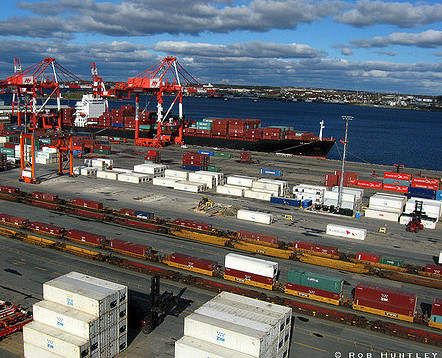The social and economic value of commercial marine shipping to Canada was the theme of a report that was published this week by the Council of Canadian Academies.
The report is the outcome of the work of a 10 membes Expert panel chaired by PortEconomics member Mary R. Brooks
As a maritime nation, Canada’s economy, culture, environment, and security have long been interlinked with commercial marine shipping. Critical to Canada’s historical development, marine shipping continues to be vital to international trade and the development of communities. It is often the only means by which food and essential goods reach Canada’s island, remote, and northern communities. While it is evident that marine shipping is of critical importance to Canada, its value had never been comprehensively assessed.
The Value of Commercial Marine Shipping to Canada is a comprehensive, high-quality, independent study that examines the broad impacts of marine shipping to Canada, addressing national, regional, and local issues. It is the first of its kind to examine “value” as including cultural, environmental, and security dimensions, in addition to economic measures. It is intended to contribute to a national dialogue and serve as a tool to help inform policy decisions related to marine shipping in Canada.
PortEconomics member Mary Brooks, says about the report “One of the biggest challenges faced by the shipping industry is being “out of sight, out of mind.” Canada is a major trading nation, and its dependence on shipping is underappreciated as a result. Many Canadians neither equate a “Made in South Korea” label with their own economic prosperity nor recognize the need for Canadian exports to reach foreign markets so that, in turn, Canadians can have choices in their purchases at home.”
“While shipping is an enabler of globalized trade, its impacts are broader than just those seen in our local port communities. That is why this report addresses national, regional, and local issues. Shipping cannot be held accountable for the ills of globalization; that is a matter for public policy-makers and beyond the scope of this report.”
You might download the report following the link: The Value of Commercial Marine Shipping to Canada.
This report should be cited as:
Council of Canadian Academies. (2017). The Value of Commercial Marine Shipping to Canada. Ottawa (ON): The Expert Panel on the Social and Economic Value of Marine Shipping to Canada, Council of Canadian Academies.












